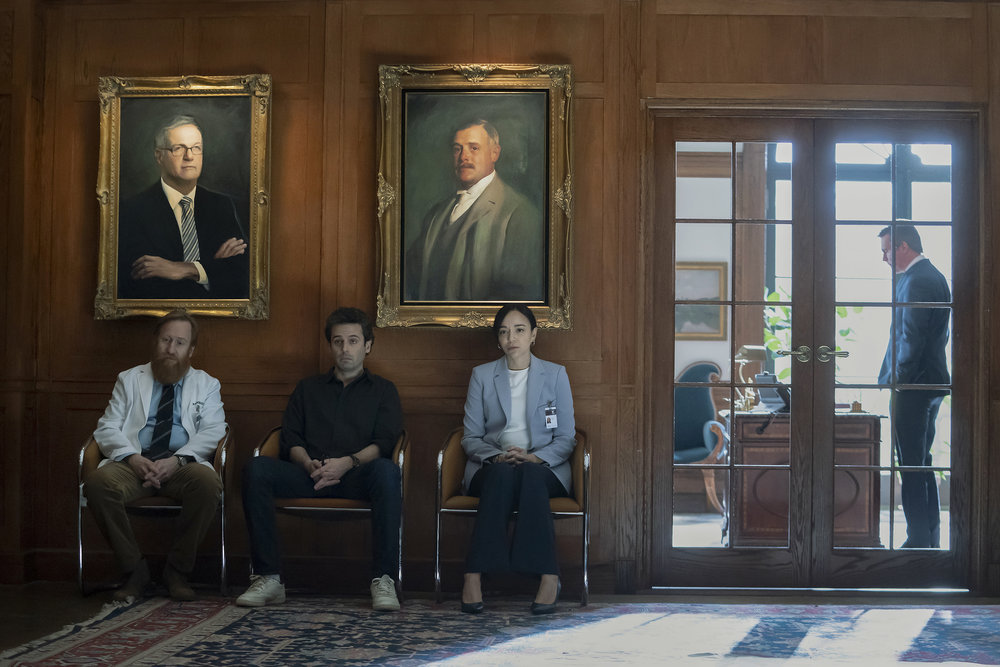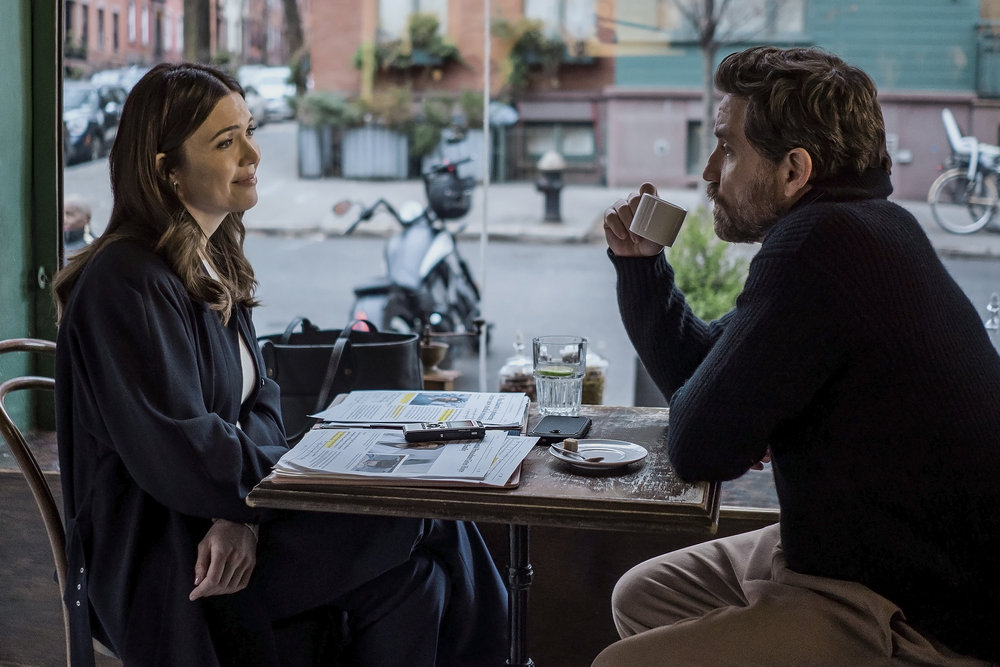In her 2014 NBC News special A Leap of Faith, Meredith Vieira touted the potential of renowned Italian thoracic surgeon Paolo Macchiarini's work as follows: "Imagine a world where any injured or diseased organ or body part you have is simply replaced by a new artificial one, literally manmade in the lab, just for you."
Two years later, NBC had pulled the documentary from its website in the wake of Macchiarini being exposed as a con man. Now, Peacock's dramatized take on the harrowing story of medical malpractice (which was also documented in the Netflix docuseries Bad Surgeon: Love Under the Knife) has arrived on streaming.
Based on Season 3 of Wondery's true crime podcast of the same name, Dr. Death Season 2 follows Macchiarini (played by Edgar Ramírez)—who rose to fame after performing the world's first synthetic organ transplant—at the height of his fraudulent success. The Peacock anthology series builds on a popular first season that chronicled the grim details of how former American neurosurgeon Christopher Duntsch injured, maimed, and paralyzed more than 30 patients and left two dead after botched surgeries in Texas.
The second season's eight-episode narrative jumps back and forth through time to reveal how Macchiarini knowingly performed experimental surgeries on patients—nearly all of whom later died—that weren't grounded in science, conned the medical community into backing his misdeeds, and seduced his ex-fiancée, investigative producer Benita Alexander (Mandy Moore), into a relationship based on a web of lies and deceit.
Here's what to know about the true story behind Dr. Death Season 2.
What did Paolo Macchiarini do?
From 2011 to 2014, Macchiarini implanted synthetic tracheas in the throats of three patients at Sweden's prestigious Karolinska University Hospital. The artificial windpipes were seeded with stem cells taken from the patients' own bone marrow, which Macchiarini claimed would allow them to function as living airways. All three patients later died from complications that are believed to have arisen from the operations. In total, Macchiarini reportedly performed the dangerous and unsubstantiated procedure on as many as 20 patients from countries that included Spain, Russia, Iceland, Britain, and the United States.
Once considered a pioneer in the field of regenerative medicine, Macchiarini first came under scrutiny in 2013 when four of his Karolinska Institute colleagues—Karl-Henrik Grinnemo, Matthias Corbascio, Thomas Fux, and Oscar Simonson—began raising concerns about his work. Dr. Death fictionalizes these colleagues as Dr. Anders Svensson (Gustaf Hammarsten), Dr. Ana Lasbrey (Ashley Madekwe), and Dr. Nathan Gamelli (Luke Kirby).

"We saw that patients who received an artificial trachea weren’t faring well after the procedure, so we started to investigate if there were animal studies or other data to support that the grafts work in patients," Grinnemo told Retraction Watch in 2017. "But as soon as we started to ask questions of Paolo Macchiarini, his team began to act strangely. We filed a complaint to get Macchiarini to stop doing the operations, because they were dangerous, and patients were really suffering."
Although there was an internal investigation that found evidence of misconduct, the higher-ups at Karolinska initially sided with and tried to protect their star surgeon—at the expense of the whistleblowers. But after a documentary focused on the controversy aired on Sweden's national public broadcasting network in early 2016, the institute ordered a new investigation and Macchiarini was dismissed from his post.
"We filed the complaint to stop the dangerous operations," Grinnemo said. "We were not against [Karolinska] and the hospital. But the way they handled the situation was a form of misconduct, in a way. They didn’t listen to our warnings. Macchiarini continued with his work. Without the documentary, it would never have been possible to stop him. I’m really happy today knowing that he’s not performing any more operations in Europe and the United States."
What happened between Paolo Macchiarini and Benita Alexander?
In 2013, Macchiarini met Alexander while she was producing A Leap of Faith, which centered on the tracheal transplant he performed in Illinois on 2-year-old Hannah Warren, who was born without a windpipe. Warren died less than three months after the surgery.

Breaching her own journalistic ethics, Alexander entered into a relationship with Macchiarini and the two planned to marry in a lavish Italian ceremony that he told her would be attended by numerous stars and officiated by Pope Francis. After discovering the extent of Macchiarini's deceptions, Alexander helped bring down her ex-fiancé by telling her story in a 2016 Vanity Fair exposé on his misdoings.
"He fooled his patients very much the same way he fooled me," Alexander told USA Today earlier this year. "They were convinced that he was the greatest hope of their loved ones surviving. He made them believe that he could help them the way he made me believe that he loved me and that he loved my daughter, and he was going to take care of us for the rest of our lives.”
What happened to Paolo Macchiarini?
In 2022, Macchiarini was tried in Sweden for "causing bodily harm" to the three patients he performed tracheal transplants on at Karolinska: Yesim Cetir, Christopher Lyles, and Andemariam Beyene. He was convicted on one count and received a suspended sentence.
The ending title cards of Dr. Death state that Macchiarini will serve no prison time. However, in June 2023, a Swedish appeals court sentenced him to 2.5 years behind bars, noting that all three deceased patients "could have lived for a not-insignificant amount of time without the interventions."
Macchiarini, who has consistently denied any wrongdoing, appealed the conviction to Sweden’s supreme court. However, the court declined to hear the appeal and Macchiarini is expected to begin serving his sentence in Spain, where he currently lives, in the coming weeks.
More Must-Reads from TIME
- Donald Trump Is TIME's 2024 Person of the Year
- Why We Chose Trump as Person of the Year
- Is Intermittent Fasting Good or Bad for You?
- The 100 Must-Read Books of 2024
- The 20 Best Christmas TV Episodes
- Column: If Optimism Feels Ridiculous Now, Try Hope
- The Future of Climate Action Is Trade Policy
- Merle Bombardieri Is Helping People Make the Baby Decision
Write to Megan McCluskey at megan.mccluskey@time.com